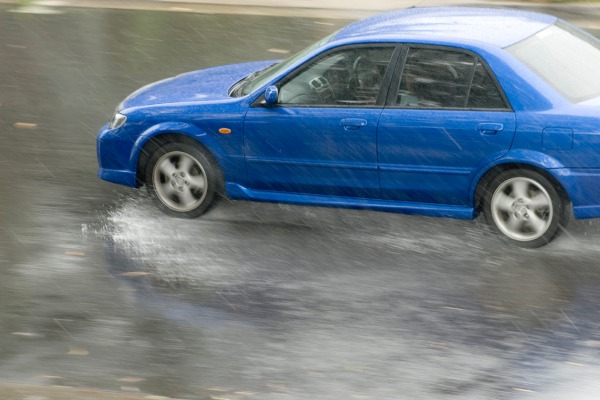
In the eternal quest for a great car deal, it sometimes seems that buyers spend too much time trying to figure all the angles. A favorite topic to explore is this: when is the best time to buy a car?
There are as many theories on this topic as there are days in the year. And, oddly enough, there is a grain of truth to almost each one. Let's run through the list and see what looks good.
Predictive TMV: Why guess? Let the pros tell you when to buy your next car. Edmunds.com's car-buying experts have come up with a strategic way to determine the best time to buy a car. Our True Market Value (TMV) Alerts predict pricing trends, showing you the likelihood of a price change — up or down — for current models available. Since many variables, such as incentives and prior transaction prices, can lead to a lower TMV price, this tool is a great way to determine the current pricing climate of the vehicle you are interested in.
Rainy Days: The idea here is that if there are no other buyers on the lot, the salesman will offer a deep discount to get your business. Any truth in this? Yes, but there's also a flip side. If you slog around a wet car lot, you'll send the signal to the salesman that you really, really need a car today and he may push for a better price. So this one is probably a wash (so to speak).
Holiday Periods: Once upon a time, business at car lots could be slow during the Christmas season, giving rise to the theory that deals could be had from dealers anxious to sell. A countervailing theory held that inventory was limited in December, so it was only a good time to shop if the vehicles you wanted happened to be in stock. The inventory picture has changed, however. In 2012, December was the month with the third-highest level of vehicles available for purchase, says Edmunds analyst Jeremy Acevedo. He expected that trend to continue in 2013. It is true, however, that dealers can be very motivated to sell in December. Read on for more about that.
15 Minutes Before Closing: Savvy buyers think that if they pop into the dealership 15 minutes before closing, the sales staff will want to go home and therefore won't do the usual two-hour back-and-forth with the boss. This theory is pretty misguided. What they actually do is put up the "closed" sign and continue negotiating. They're willing to stay late to make a deal.
Early in the Week: A dealer once told us that car salesmen refer to the weekends as the "tuna run" — there are so many customers on the lot, you just pull them into the boat. If you try to stand firm on price, the salesman will just hook another tuna. So why not shop during the week, when there is less foot traffic on the lot and you can get the salesman's undivided attention? After all, on a Monday or Tuesday, the tuna run seems like years away.
End of the Month: Now we're getting somewhere. Dealers might be a car or two short of a quota that will give them a big bonus. They discount the car to you and make up the difference in their bonus.
End of the Model Year: As the new cars begin to arrive, last year's model loses its luster and also its high price. There are some surprising discounts and often a lot of customer cash rebates. Be sure to check Edmunds.com's Incentives & Rebates for customer cash rebates, low interest incentives and dealer cash.
End of the Car's Design Cycle: The manufacturer is going to continue making a certain model car, but it is about to introduce a completely redesigned car under the same name. Now we're seeing some serious discounts. True, you are buying a car that is essentially outdated and out of fashion, but some people are more bargain hunters than they are trendsetters. Here, the savings will be huge, especially for the buyer that trolls information from Edmunds.com's Incentives & Rebates.
End of the Car's Lifecycle: Sometimes the manufacturer announces that the car will be discontinued — forever. Now we're talking off-the-charts savings. But there are two problems: you've got a car that will plummet in the depreciation category and you'll have to keep fielding questions like, "Didn't that car get the axe?" from friends and relatives.
Full Moon: Actually, we just threw this one in to prove our point. If you seriously thought there was a full moon discount, you are trying too hard to figure all the angles.
Really, the best time to buy a new car is when you need one and only after you have completed your research. Figure your price on the car using Edmunds.com's TMV® pricing and factor in the incentives and rebates. See if there are any Edmunds Price Promise® offers on the car, which can save you the stress and time spent negotiating. Then make your deal. In the long run, this approach makes more sense than trying to predict the effects of weather, holidays and the seasonality of your car purchase.